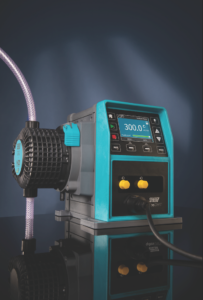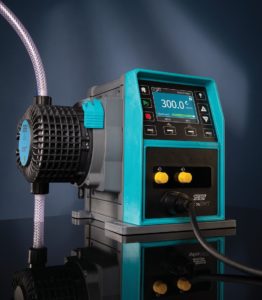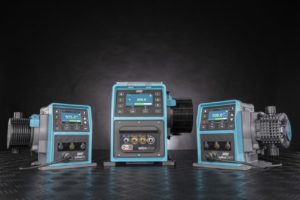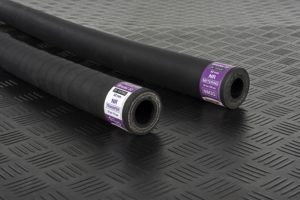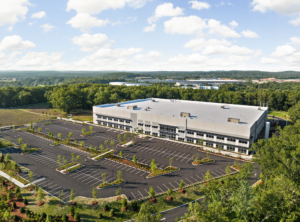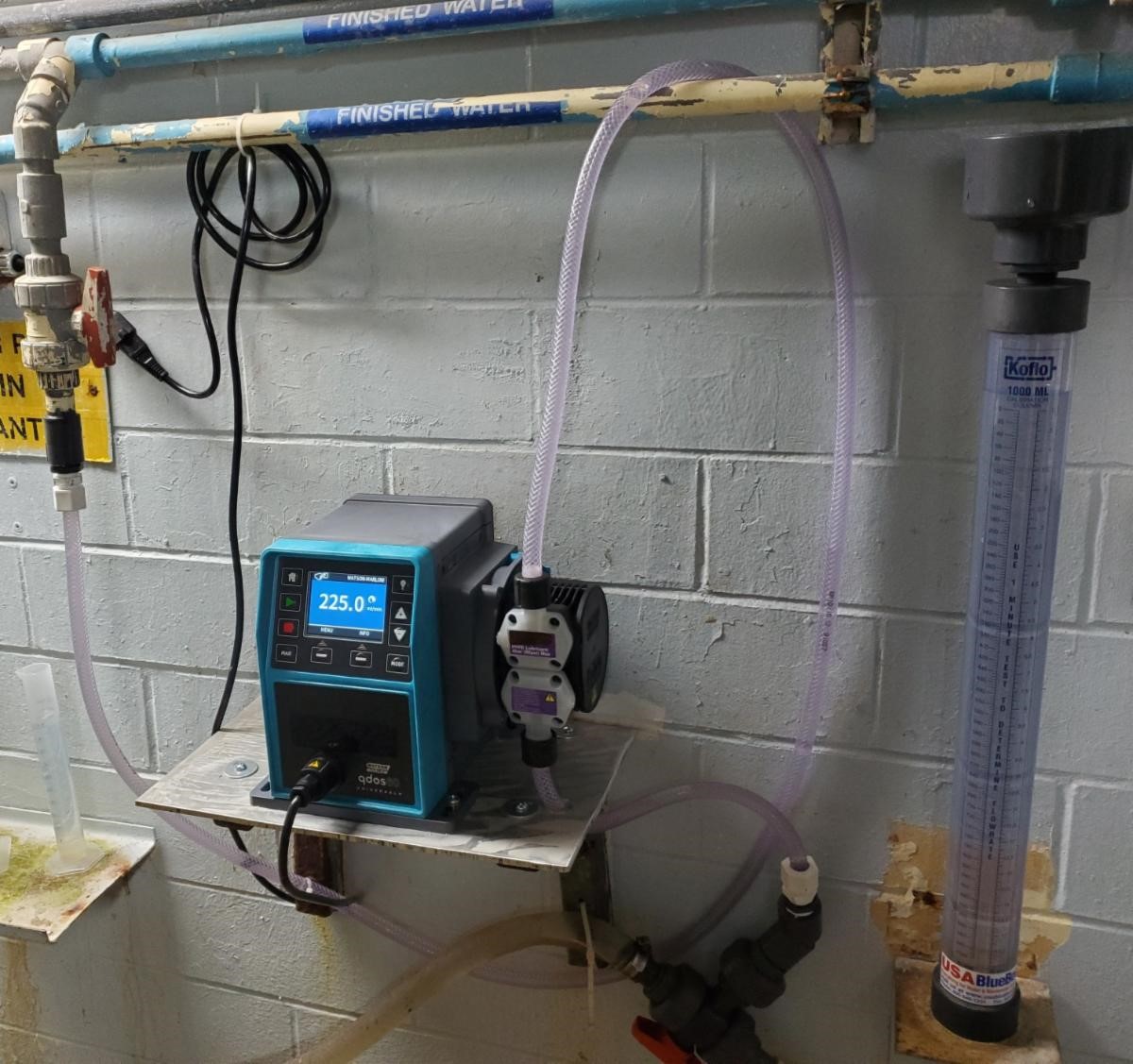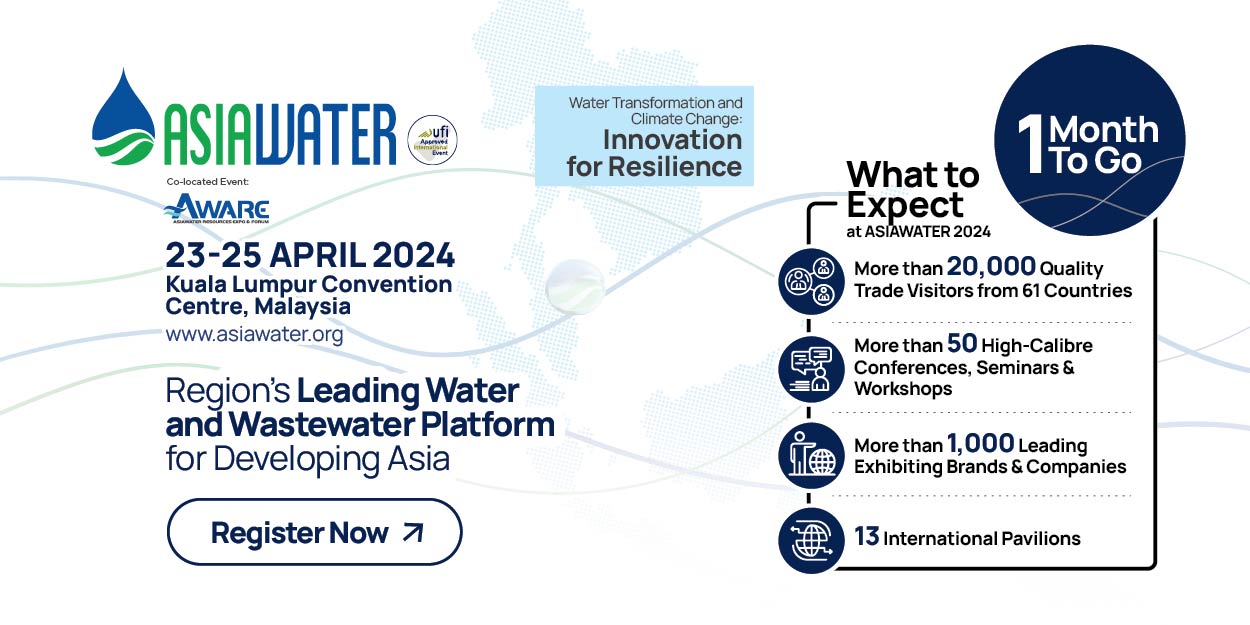Bredel and Qdos Peristaltic Pumps Help Decontaminate Mine Water
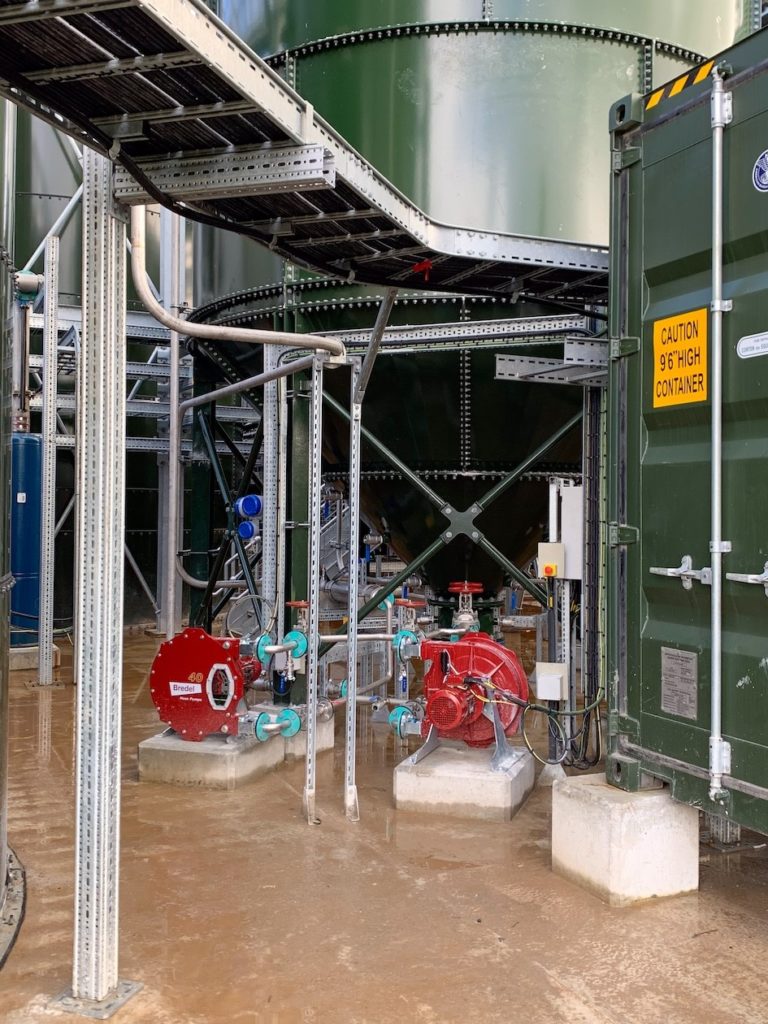
Two Bredel hose pumps transferring sludge at the newly-opened water treatment plant at South Crofty tin mine in Cornwall, England. (Image source: Watson-Marlow Fluid Technology Solutions)
South Crofty ceased producing tin in 1998 but Cornish Metals is working to reopen it, aiming to reinstate production by 2026. Before Cornish Metals can begin extracting tin, it must dewater the flooded mine and treat eight million cubic metres (m3) of contaminated water so that it meets standards set by the Environment Agency. The treated, clean water is then discharged into the nearby Red River at a rate of up to 25,000m3/day (882, 866 cubic feet).
As part of the process to decontaminate water pumped out of the underground tin mine, the Bredel pumps are used for transferring sludge, while the Qdos pumps are dosing hydrogen peroxide to oxidise the contaminated metals in the mine water at the WTP. Cornish Metals expects the dewatering of South Crofty to take 18 months.
Qdos is accurately dosing hydrogen peroxide during the cleaning of the contaminated mine water, to oxidise the metals and cause iron and arsenic to precipitate out of the solution, in the first of five process steps at the WTP. Bredel hose pumps provide the process with reliable, low maintenance and contained transfer of thick sludge - containing contaminants such as iron, manganese and arsenic - which is separated from the treated water in stages two and four. The Bredel hose pumps are transferring sludge out from the lamella clarifier into a tank, where the sludge is thickened, and then pumping the thickened sludge to another tank from where it is transported to a nearby site for underground storage.
Steven Kingstone, South Crofty Project Manager at Cornish Metals, said: “We are lucky in Cornwall to have a number of suppliers such as Watson-Marlow, producing high quality equipment that we can utilise in the reconstruction of South Crofty mine. This highlights the importance that we place on buying local where we can, which ensures that the reopening of South Crofty benefits the local population and economy as much as possible. As the site develops, we look forward to continuing to work with Watson-Marlow.”
Tin is vital to decarbonisation and the energy transition due to its use in (soldering on) printed circuit boards (PCBs), semiconductors, solar PV and is contained in both lead-acid and lithium-ion batteries.
The world is going to need another 50,000 tonnes of tin per year by 2030 to meet a surge in demand, according to the International Tin Association. South Crofty has the fourth highest grade tin mineral resource globally, according to Cornish Metals, and the mining site is strategically well positioned as currently there is no primary tin production in Europe or North America.
Bredel and Qdos pumps, from WMFTS, are contributing to the WTP’s goal of minimising South Crofty’s impact on the local environment. Before start-up of the WTP in October 2023, the Red River received untreated mine water as a legacy of past mining activities.
A cleaner and healthier Red River will benefit people, wildlife and the local economy. Also, the water discharged from South Crofty powers a hydro-turbine that generates up to 15% of the power consumed by the WTP.
Bredel hose pumps accommodate continuous flow rates up to 108 m3/hr and are extremely durable (pressures up to 16 bar). There are no internal universal joints, valves, dead corners or glands to impact flow, and they are reversible for back-flushing. Bredel hose pumps can handle undiluted mine water, tailings and thickener underflow with up to 80% solids.
Pumps like those in the Bredel range are virtually maintenance-free as there are no impellers, liners or mechanical seals to replace, no check valves to clog and no rotors or stators to wear out. The only wear-part is the hose, which can be replaced in a matter of minutes with no special tools.
Qdos pumps are also low maintenance – reducing the impact of process downtime and lowering the overall cost of ownership – while providing accurate, linear and repeatable chemical metering across all process conditions. Chemical costs can be reduced by higher accuracy metering, with flow rates that remain constant from 0.1 to 2000 mL/min at up to 7 bar.

